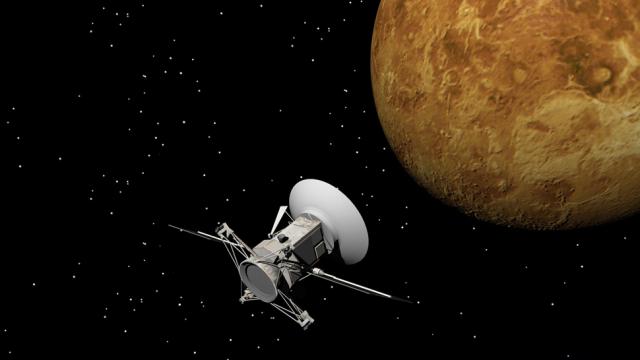If you’ve been trying to recall what makes theoretical maths super fun, here’s a reminder. Researchers from the University of Edinburgh published a paper in the International Journal of Astrobiology that examines how long it would take Voyager-sized probes to bop around the Milky Way and eventually encounter our solar system. The answer is not that long! Especially if the probes are using gravitational slingshotting and especially if they’re self-replicating.
The researchers’ findings support the existence of a thought experiment called the Fermi Paradox, first posited in 1953. The paradox explores the contradiction between the high probability that there is other intelligent life in the universe and the fact that humans have not had contact with alien civilizations. Proposed by physicist Enrico Fermi, the paradox points to things like the Sun’s relatively young age (compared to other Milky Way stars) as evidence that enough time has elapsed for it to be reasonable that another civilisation could have discovered Earth.
The researchers calculated outcomes for three different scenarios: one where probes fly around using onboard power, one where probes fly to an unvisited star using onboard power plus slingshot techniques (harnessing the power of a star’s gravitational field to sort of boomerang around and gain velocity), and one where probes are sent to an unvisited star based on which will give the biggest velocity boost in a slingshot manoeuvre. The researchers concluded that even with built-in conservative estimates, combining boomerang techniques with self-replicating probes (obviously) allows for quick exploration of the galaxy. Fermi’s paradox lives on. Also please don’t endlessly debate whether or not we have already been contacted by aliens in the comments. Yeah, I’m looking at you. [PhysOrg]
